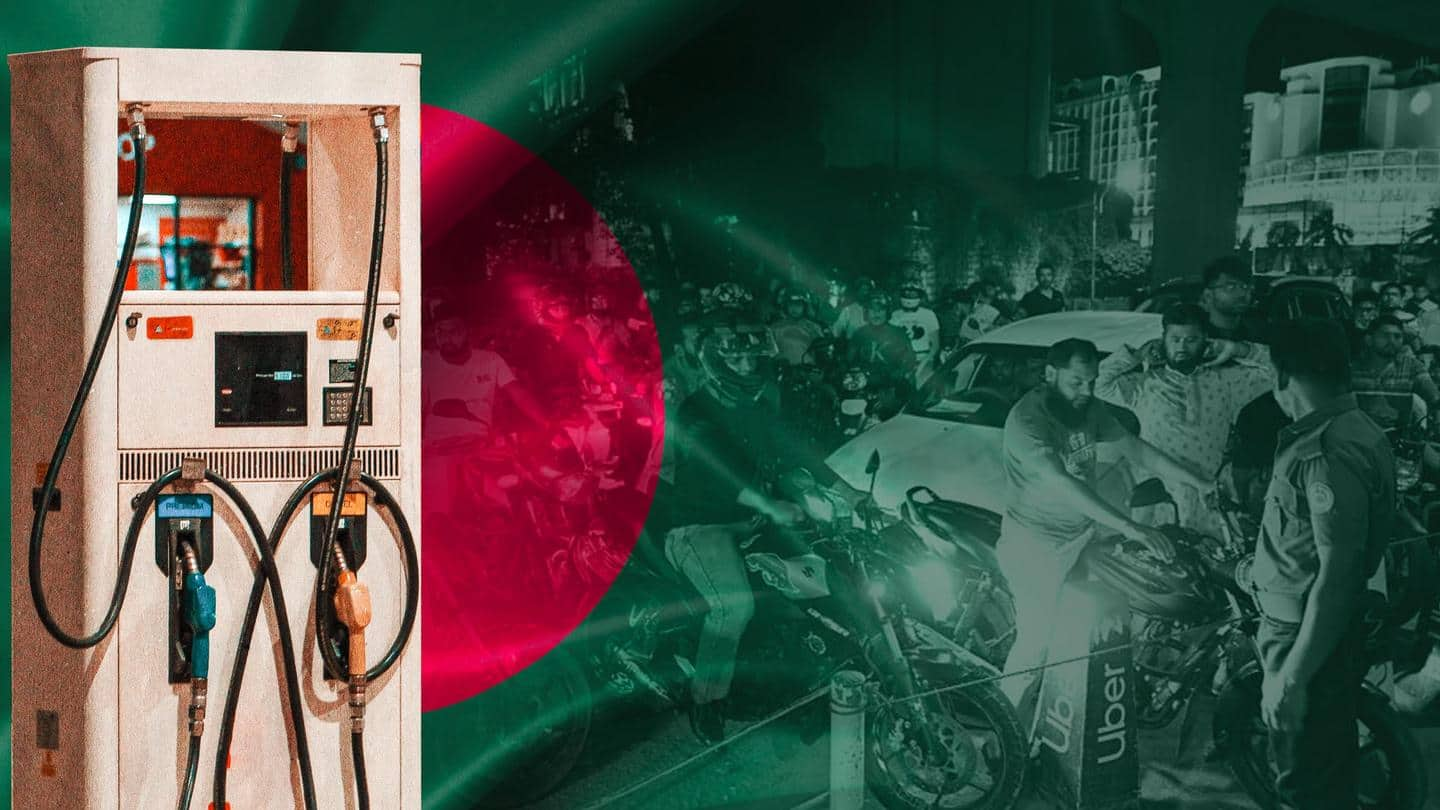
Bangladesh: Protests erupt after 52% fuel price hike amid slowdown
What's the story
Protests erupted across Bangladesh following a sharp increase in fuel prices amid the country's economic slowdown.
According to Bangladeshi media, the hike is the "highest ever" since the country achieved independence and has increased petrol and diesel prices by more than 50%.
Bangladesh is India's second neighbor to be hit by such protests, following the island nation of Sri Lanka.
Context
Why does this story matter?
In Bangladesh, enraged protesters surrounded petrol stations and demanded that the unprecedented price hike be reversed.
The Sheikh Hasina government announced the increase on Friday, after which the diesel rate increased by 34 Taka per/liter, octane by 46 Taka per/liter, and petrol by 44 Taka per/liter.
Several social media videos showed people waiting in line at fuel stations at night to fill their vehicles.
Statement
Official statement over the development
"The new prices won't seem tolerable to everyone. But we had no other choice. People have to be patient," Nasrul Hamid, the state minister for power, energy, and mineral resources, reportedly stated on Saturday.
He stated that if global prices fell, prices would be adjusted.
Several marches were recently held against the government's decision, with student unions demonstrating in front of Dhaka's National Museum.
Reason
What is the reason behind the hike?
The South Asian nation's $416 billion economy has been among the world's fastest-growing for years.
However, rising energy and food rates have increased its import bill, leading the government to solicit loans from international lending agencies, such as the International Monetary Fund.
"Common people are...in hardship to cope....rise of living costs. Government's looting of public property...mismanagement led people toward this suffering," a protester stated.
Fact
Bangladesh's inflation rate has surpassed 6% for nine months: Reports
Bangladesh's energy ministry stated that the fuel price increase was unavoidable given global market conditions, which noted that the state-run Bangladesh Petroleum Corporation had lost more than $85 million on oil sales in six months.
Bangladesh's inflation rate has surpassed 6% for nine months in a row, with annual inflation reaching 7.48% in July, putting pressure on low-and middle-income families to meet their expenses.
Information
Bus fares hiked after government's decision
The fares of buses increased after the government's notification, which was rejected by organizations such as Bangladesh Jatri Kalyan Samity (BJKS). According to the Dhaka Tribune, they asserted that the new bus fares should be determined after "proper cost analysis."